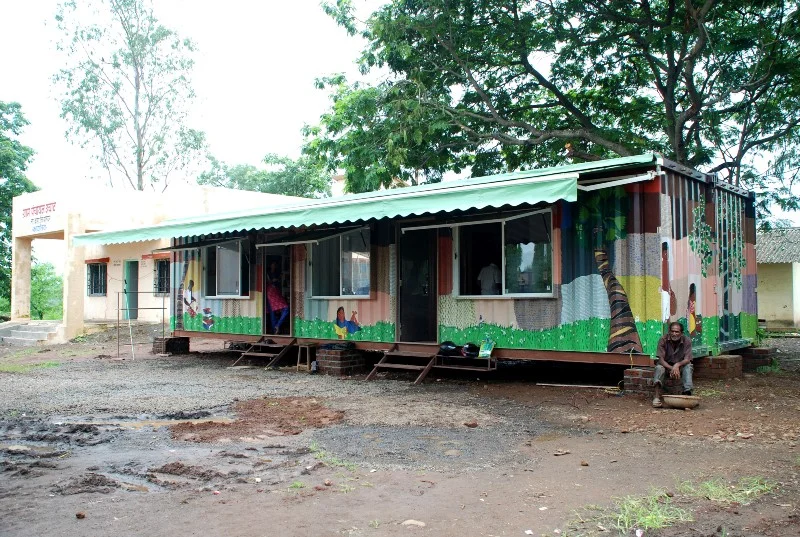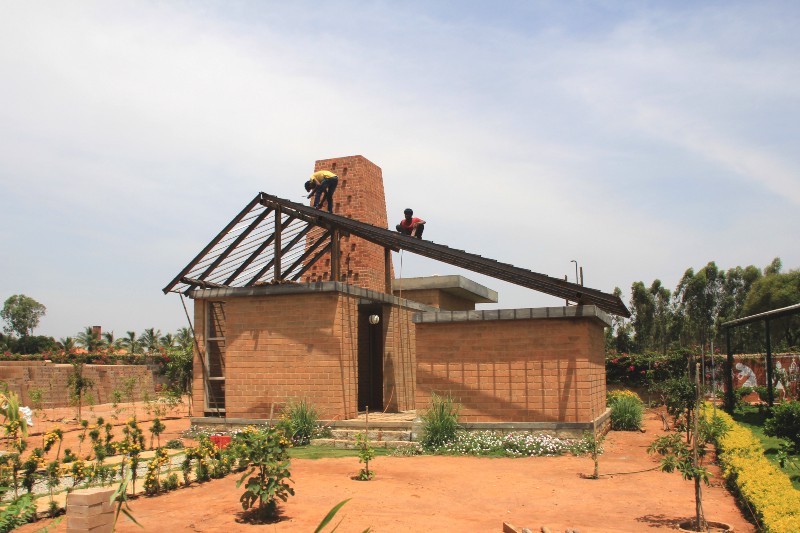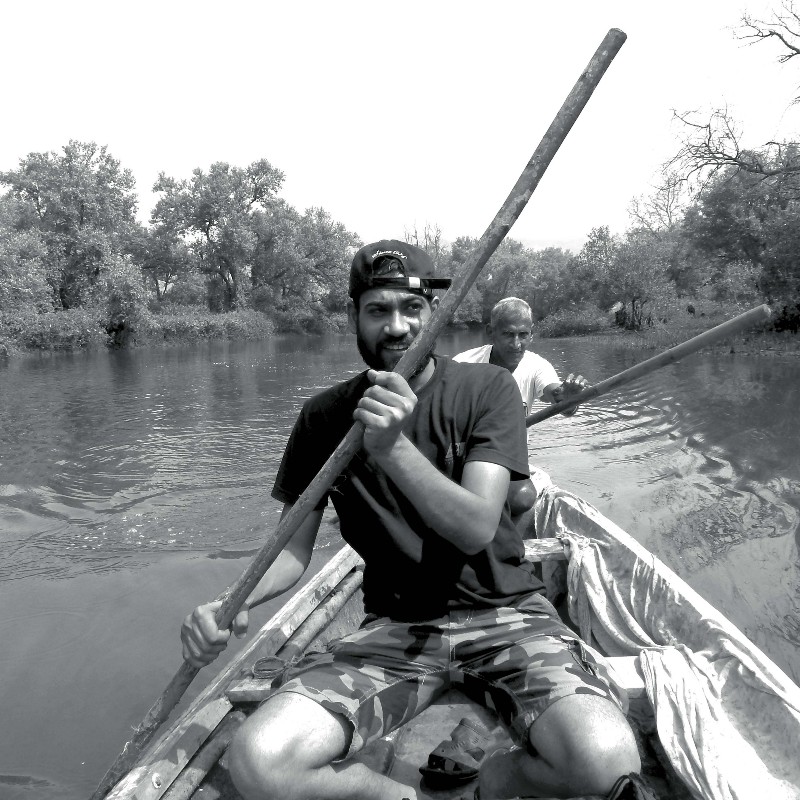The Yellow Bag— Practical Alternatives To Disposable Plastic Bags

Innovator: Gowri and Krishnan
Vocation: Social entrepreneurs
Location: Madurai, Tamil Nadu
Polythene bags were first introduced into our lives in 1977 when New York-based supermarkets replaced paper bags with plastic bags. Since then, plastic bags have become part and parcel of our daily lives. On an average, every individual in the world uses about 200 polythene bags in a year before disposing them in trash. We use one trillion plastic bags every year or 20 lakh every minute. And each plastic bag takes 1,000 years to decompose. Thus, one can imagine the grave situation that has been created in the world due to our indiscriminate consumption of plastic bags.
According to recent research, scientists have found that 46,000 pieces of plastic float on each square mile of sea. In the Northern Pacific Ocean, there is an entire island of trash, and this island is bigger than the size of France. This “trashy island” is known as the Great Pacific Garbage Patch.
In India, 99 per cent of retailers use plastic bags and 80 per cent of consumers prefer plastic bags over any other biodegradable bags. Eighty per cent of plastic bag consumers say that they once use the plastic bag just once before disposing it in trash. In such a situation, it has become imperative to find an alternative of plastic bags.
Our latest parindey from Madurai in Tamil Nadu, Gowri and Krishnan provide people with a practical alternative to plastic bags through their social enterprise called The Yellow Bag. The social enterprise serves two purposes: It provides an environment friendly alternative to polythene bags and provides a new source of income for the local underprivileged societies.
“My wife Gowri and I were working with two big MNCs in Chennai. We were leading simple but happy lives together. From the modern world’s perspective, we had everything to live a happy and prosperous life. In 2010, we were gifted with a beautiful daughter; and that’s when our perspective of the world changed.”
When our daughter Charmy was two years old, she used to fall ill very frequently. She was suffering from some breathing problems. We went from one hospital to another but found little relief. We were trying to understand the reasons behind Charmy’s problems but nobody was able to pinpoint a definite reason. After almost a year, we decided to move away from allopathic medicines to alternate treatment under the guidance of a traditional physician (vaidya) in Tamil Nadu. And we were surprised that an ailment, which had been causing physical discomfort to our little daughter for a year and mental discomfort to us, was cured in mere two months.”
This forced the young couple to think whether what they had been taught and told about life was all that there was to living. They began to wonder if there were alternate ways of living that they had never been told about. They began to think about the implications of their actions on the world. They began to question how they were contributing to the society. They began to analyse what they were leaving behind for the future generations.
“That’s when we started to slowly change our habits and our lifestyle. We began to look for alternatives for things that we were using on a daily basis in an effort to move towards a zero (or minimum) wastage lifestyle,” Krishnan added.
One of the decisions that Krishnan and Gowri took was to completely replace the consumption of polythene bags with cloth bags. However, when they looked for one in their house, they found none. And that pushed them into a serious thinking mode.
Gowri says, “We were both born in Madurai, a town where families had a tradition of making cloth bags and using them for various purposes — from shopping to gift bags. In an effort to revive this tradition, we got some cloth bags from Madurai and gifted them to our friends in Chennai. Little did we know then that it will turn into a vocation for the two of us.
When we received positive reactions from our friends and family for these bags, we began to expand our efforts. Eventually, we reached a point where we thought that if we wanted to take this initiative forward, we must give it our complete attention and time. And so I resigned from my job. A few months later, Krishnan quit too; and the two of us completely immersed ourselves in this initiative.”
After quitting their corporate jobs, the two of them moved back to Madurai from Chennai because Madurai was where the bags were being produced. Today, at least 30 women from Madurai and nearby areas are associated with The Yellow Bag for their livelihood. About 10 women, who are mentally challenged, help the couple in packing and packaging. On a daily basis, these women make more than 1,000 bags; and the Yellow Bag has a minimum of 150 regular monthly customer base.
Gowri and Krishnan’s vision is to produce one lakh bags a month by the end of this year and to encourage more and more people to leave plastic bags for alternative choices.
The couple says that if a cloth bag is used with care, it can curb the consumption of 1,000 plastic bags a year.
The Yellow Bags are not just environment friendly but they are also a means of challenging the global economy by providing employment to indigenous communities and making them self-dependent.
(This story originally appears on 52 Parindey).
Rahul and Udita are part of 52 Parindey - a project dedicated to identifying and documenting the lives of 52 innovators making a conscious living for themselves and their planet through alternate, eco-careers in Indian towns. The project aims to inspire youth to follow a similar path and eventually help regenerate the ecosystems of India and the world.







